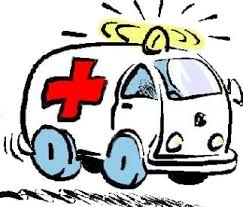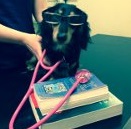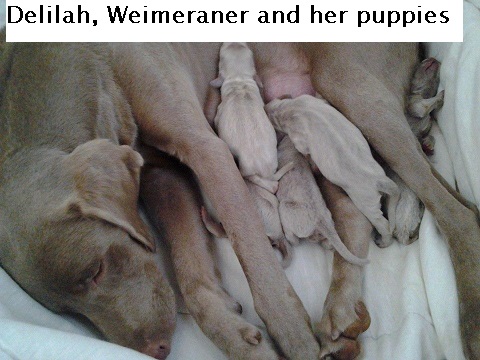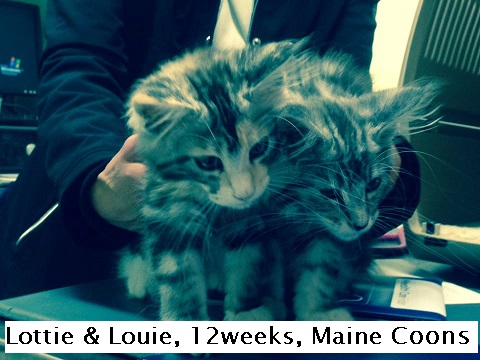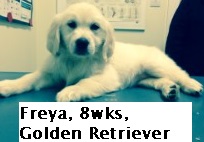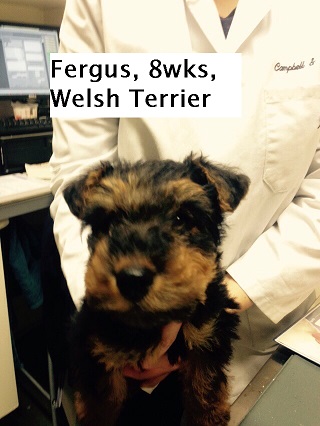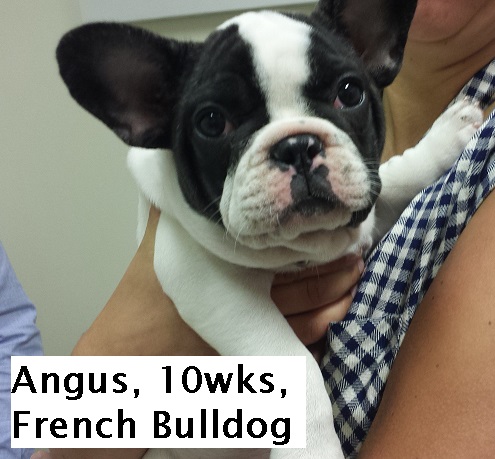Newsletter June/July 2015

OUT OF HOURS UPDATE
Pets A&E (formally of Kinning Park & recently of Pets Empawrium, East Kilbride) is no longer operational as our out of hours provider.
In case of emergency please contact either:
VETS NOW
123-145 North Street,
Glasgow,
G3 7DA
0141 332 3212
OR
SMALL ANIMAL HOSPITAL
UNIVERSITY OF GLASGOW
Bearsden Road,
Glasgow
G61 1QH
0845 850 2080
(depending on which service is more accessible to you).
http://www.campbellandgallowayvets.co.uk/out-of-hours/
**********************************
SPRING & SUMMER POISONS
Raisins – treats such as hot-cross buns and fruit scones have raisins in them. Raisins, currants, sultanas & grapes are poisonous to dogs, and may cause kidney failure.
Chocolate – Chocolate contains theobromine, which is toxic to dogs and cats. It can have adverse effects on the heart, central nervous system and the kidneys. Although the quantity of theobromine varies in different types of chocolate (dark and better quality chocolates have the most!), we advise NEVER giving chocolate to your pets.
Flowers – Daffodils can be toxic, especially if the bulb is eaten, but even the flower heads can cause vomiting and diarrhoea.
All parts of the bluebell plant are toxic to dogs. Signs of ingestion are vomiting, diarrhoea and sometimes arrhythmia (irregular heart beat).
Lilies are toxic to cats!
Other flowers, such as tulips or crocuses, are considered less toxic but can still cause upset stomachs.
Anti-histamines – Please consult a veterinary surgeon before giving your pet anti-histamines such as chlorphenamine (Piriton). Anti-histamine overdose causes vomiting, diarrhoea, lethargy, inco-ordination and tremors. We can advise on the best dose to give your pet if they need to take them.
Toads – Signs of toad ingestion include hypersalivation (drooling), foaming or frothing from the mouth, vomiting, fever, wobbliness, shaking, convulsions, and collapse. If ingestion occurs rinse your pets mouth out with water (don’t let them swallow the water) and contact your vet. We have had one case of toad ingestion last month – luckily the wee dog is doing well.
Adder bites – the European adder is venomous. It has a black/brown zigzag pattern down its back and a V shaped marking on its head. Signs of adder bite include localised swelling to bite area, pale mucous membranes (gums, around eyes), salivation, vomiting, diarrhoea, lethargy, clotting disorders, convulsions. Please contact your vet immediately if you suspect an adder bite.
Ant powders or similar – home-use ant powder, baits and gels don’t usually cause significant problems. However, if you suspect ingestion you should contact your vet for advice. Signs of ant powder ingestion include constricted pupils, drooling, wobbliness, fever, slow breathing or seizures.
Slug/snail pellets – Slug pellets that contain metaldehyde are among the most dangerous poisonings we see in dogs. Even small quantities of pellets can cause severe signs, so suspected poisonings should be seen by a vet immediately. Signs of slug pellet poisoning include muscle spasms, twitching, inco-ordination and seizures.
If you suspect your pet has ingested anything unusual please contact us for further advice.
**********************************
SUMMER FIRST AID
Sunburn – You should consider a pet-safe sun cream on sunny days, especially if your pet is white/blonde haired or has pink areas of skin on show.
Insect stings – Common signs of insect stings include pain, redness and swelling. Some insect stings are more serious than others; it depends on the insect and the location of the sting.
Bee stings – Bees leave a barbed sting embedded in the sting site which needs to be removed. You can remove stings using a blunt object (tweezers are not advised as they can squeeze more venom out of the sting). Once the sting is removed bathe the area in a mixture of bicarbonate soda and water, then apply an ice pack.
Wasp stings- wasps don’t leave a sting behind so there is no need for removal. The affected area should be bathed with vinegar or lemon juice as these will neutralise the alkaline sting. An ice pack should be applied afterwards.
It is important to monitor your pet for 24 hours post sting as a delayed allergic reaction may occur- signs include disorientation, vomiting, difficulty breathing or moving.
Please contact us or the out of hours’ vets if your pet gets stung and we can advise on the best course of action.
Heatstroke – Dogs don’t tolerate high temperatures as well as we do – imagine wearing a fur coat on the beach! They only have sweat glands in the feet and nose, so aren’t that good at cooling themselves down. Although all breeds are at risk, certain breeds are more prone to heat stroke including short-faced, overweight or thick-coated dogs
The signs of heatstroke include: heavy/fast panting, barking/whining, signs of agitation, excessive thirst, excessive drooling, increased heart rate, darker coloured gums/tongue, “glassy” looking eyes, fever, staggering or weakness when walking. Heat stroke can also cause collapse, seizures, unconsciousness and death.
You can avoid heat stroke by:
- Restricting exercise, and giving plenty of breaks
- Trim long-haired coats
- Walk dogs early in the morning or late at evening when it’s cooler
- Always give access to shade
- Always take water on walks
- Spray dogs with cool water, hose them or give access to a safe paddling pool
- Avoid leaving pets in conservatories, greenhouses or tents
- Never leave pets in cars on hot days
If you suspect your pet has heatstroke, contact your veterinary surgeon immediately.
**********************************
DR DR…
Veterinary Surgeons in the United Kingdom can now use the title “Doctor”. 11,202 voters responded to a consultation and the Royal College of Veterinary Surgeons decided to allow the title to be used. The title is already used by vets in other countries including the U.S.A. and Australia.
http://www.rcvs.org.uk/news-and-events/news/uk-veterinary-surgeons-to-use-courtesy-doctor-title/
**********************************
STAFF NEWS
We have a new trainee nurse! Zoe joined us at the beginning of May and is settling in well. She has previously worked at the PDSA in Glasgow and at the Vet Centre, in Uddingston. Zoe is owned by a miniature Dachshund, Poppy, who is twelve years old but still acts like a naughty puppy.
Zoe is already trying hard to get to know all our lovely clients and their pets.
WELCOME ZOE!
**********************************
CLIENT EDUCATION EVENINGS
We are currently seeing if there is any interest in free client education evenings.
They would be at the practice later in the year and would involve chats from our vets and suppliers and hopefully be educational and interesting!
If there is enough interest then we will get our organising hats on.
Let us know your thoughts or any areas you would be interested in learning more about!
**********************************
NEW ARRIVALS
–
–
–
–
–
–
CAMPBELL & GALLOWAY
VETERINARY SURGERY
TEL: 0141 445 6869
campbellandgallowaynews@hotmail.co.uk
www.campbellandgallowayvets.co.uk
www.facebook.com/campbellandgallowayvets
See all News, Newsletters | June 12, 2015 | 10:21 am





